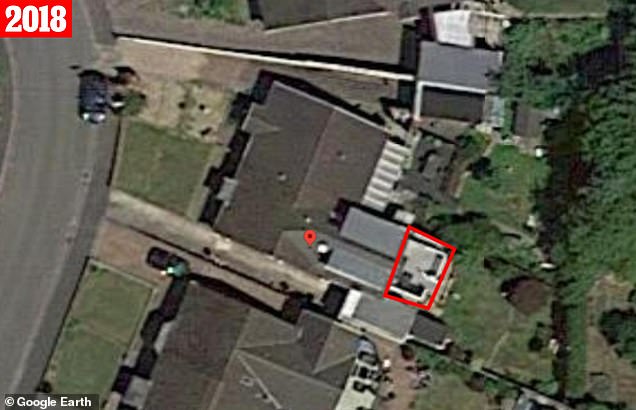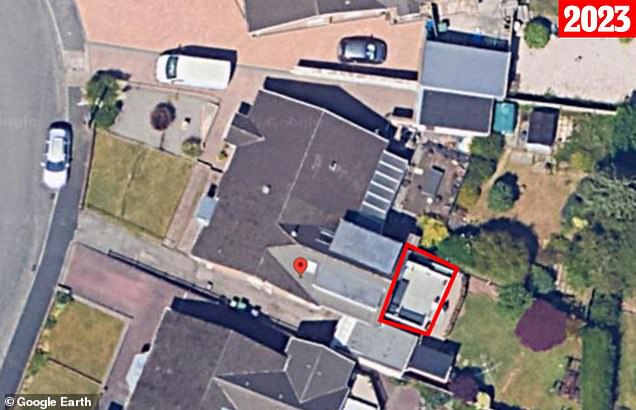A homeowner has won a long-running planning battle against council busybodies who told him he needed permission for his decking – and he was victorious thanks to Google Earth.
Gareth Leek, 58, was left stunned when planning officials claimed his beloved garden decking was too tall and needed retrospective permission, despite it being in place for eight years.
Councillors argued the raised grey-and-white platform in his Pontypool, Gwent, garden stood 83cm high – half a metre over the limit requiring planning permission.
But Mr Leek wasn’t about to let his pride-and-joy be torn up without a fight.
Instead of backing down, he went high-tech, digging out satellite images from Google Earth to prove the decking had been there for over four years, meaning he should legally be allowed to keep it.
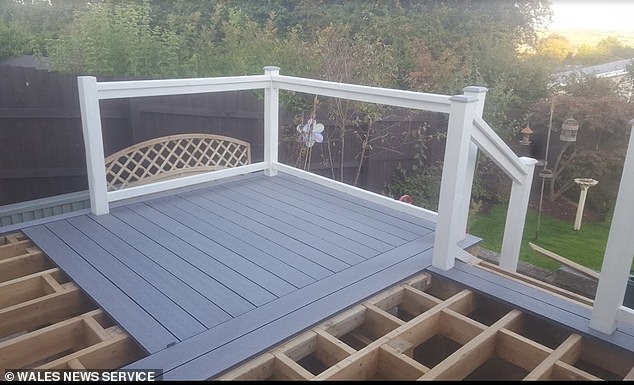
Council busybodies argued the raised grey-and-white platform in his Pontypool, Gwent, garden stood 83cm high
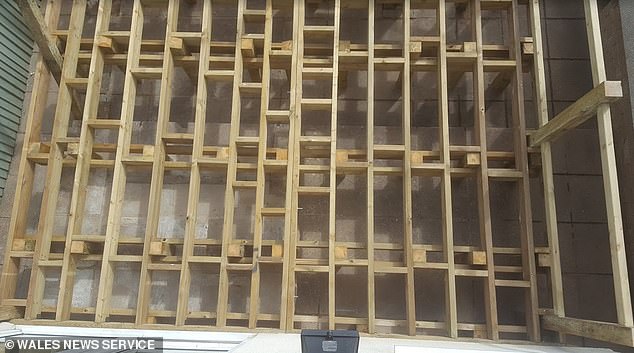
But Mr Leek wasn’t about to let his pride-and-joy be torn up without a fight
Satellite pictures from Google Earth show that the deck had been in the garden in 2018 – making it five years unchallenged meaning he should legally be allowed to keep it
The decksaving aerial snap, dated June 2018, showed the decking firmly in place.
His decking 4.84m wide and 3.82m long was saved in his garden in Pontypool, Gwent.
He was also backed up by a neighbour supporting him keeping the decking, saying it was in place in the garden since at least 2019.
A planning hearing heard Mr Leek had retrospectively applied for a certificate of lawful development.
Planning officer Simon Pritchard acknowledged the evidence presented by Mr Leek, which included a Google Earth aerial image from June 2018.
Mr Pritchard said the council had no evidence or reason to doubt that the decking had not been ‘substantially completed for less than four years’.
Mr Pritchard’s report confirmed his application to keep his smart decking is now immune from enforcement action, and he can keep it.
It’s not the first time the technology has been used in evidence in planning rows.
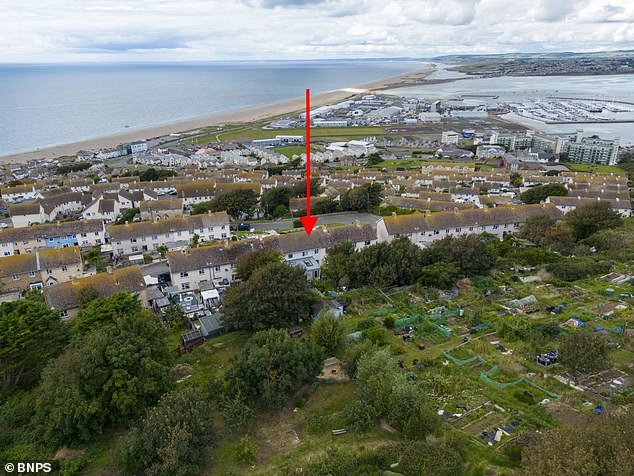
In 2023 Colin Thomas, from Dorset, was told he had to tear down his single-storey rear extension after planning officers used Google Earth to prove it had been built after 2020. Pictured: Colin Thomas’s property in 2023
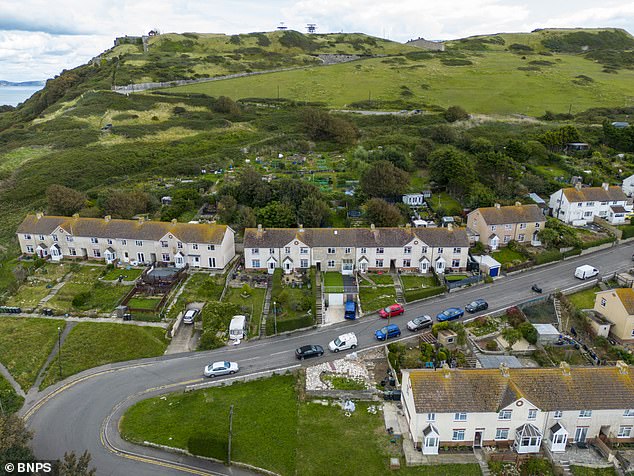
Dorset Council refused Mr Thomas’ application and he faced the prospect of demolishing his decking and extension
In 2023, a homeowner was told he had to tear down his decking and extension after council officials used Google Earth to prove that he built them illegally.
Colin Thomas, 65, tried to use a loophole in planning law to keep the two structures at the front and rear of his terraced house in Portland, Dorset.
He ‘solemnly and sincerely declared’ that the raised decking in the front of his house and the single-storey extension at the rear existed for more than four years – making it exempt from council planner’s bids to remove them.
Mr Thomas alleged that the 20ft by 16ft raised decking and rear extension had built soon after he bought the property in 2012, a claim that was backed by his builder and friends.
But Google Earth and Street View satellite photographs taken in September 2020 have revealed that the rear extension and decking were not present three years ago.
Officials have now determined he had not obtained planning permission for the works and wrongly thought they came under permitted development rights for homeowners.
Mr Thomas applied to the local council to make both structures lawful under the rule that recognises any changes to a property that have been in place for four years are exempt from enforcement action.
As a result Dorset Council refused Mr Thomas’s application and he now faces the prospect of demolishing both the rear extension and the raised decking.
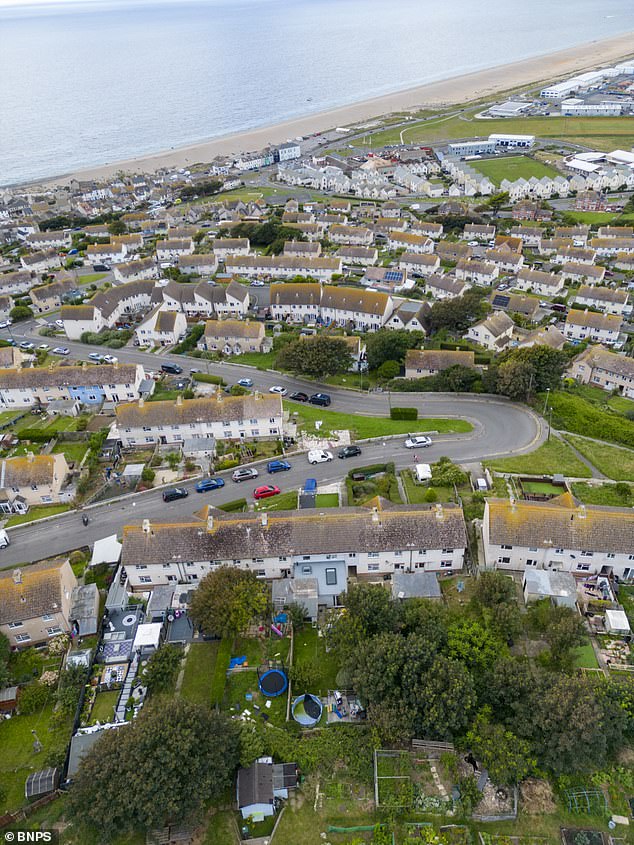
The works included decking and artificial grass to the front and a new extension to the rear, which Mr Thomas claimed were carried out in 2012 (pictured in 2023)
Planning officer Thomas Wild, who had looked up the property on Google Earth and Google Street view, concluded: ‘Therefore…it does allow for a conclusion that the rear extension was constructed between September 2020 and June 2022.
‘Therefore it has been present for less than four years and has not achieved immunity from enforcement action on that basis.’
With regards to the raised deck at the front of the house, Mr Wild found the structure was there in Google photos taken in 2016 and 2021.
But he found this was a different decking to the one that stands today.
He said the original decking was timber but the present structure is made from composite boards that have been topped with artificial grass.
He also worked out that the replacement decking was bigger than the original.
Mr Wild said that although it was ‘accepted that by around 2016 the original timber decking had become immune from enforcement action, that immunity was lost when the decking was removed’.
He added: ‘The construction of the decking are fresh breaches of planning control which do not benefit from previously accrued immunity.’
A spokesperson for Dorset Council said: ‘The evidence available from Google Street View images indicates that the decking currently on the site is different from the decking constructed in 2012, which the council accepts did achieve immunity from enforcement, but which was subsequently removed.
‘The new decking is larger, with a different design, incorporating a garage underneath it and is therefore considered to be a new breach of planning control.


